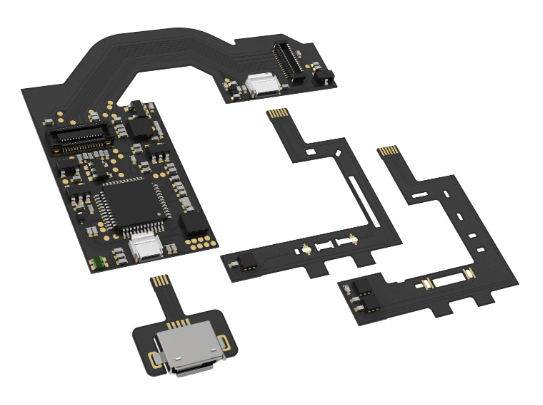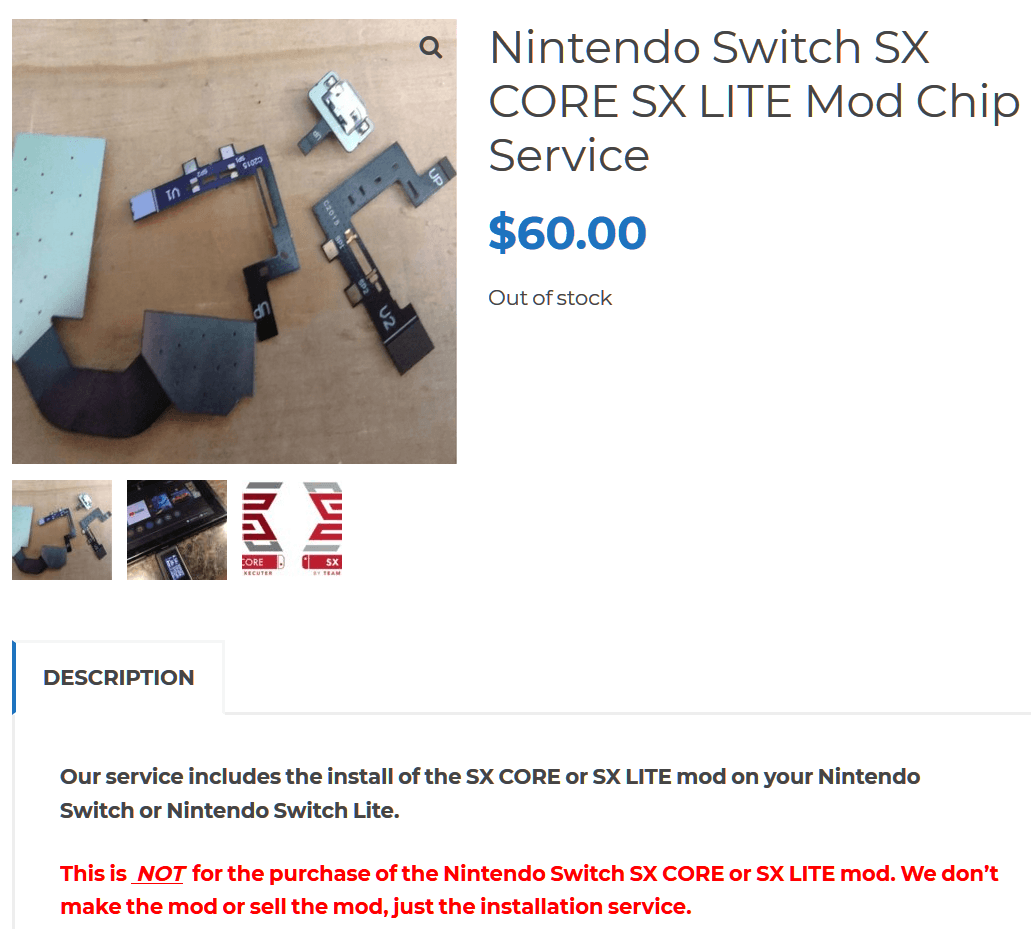In an effort to restrict the availability of devices that can enable people to play pirated games on Switch consoles, last month Nintendo sued several stores offering products developed by Team-Xecuter.
According to the Japanese gaming giant, the SX Core and SX Lite hardware mods – which work on all Switch consoles – are illegal tools that breach the DMCA’s anti-circumvention provisions. The company warned that should the devices saturate the market, they have the potential to expose more than 35 million Switch consoles to piracy.
Having failed to track down and prevent Team-Xecutor from developing and manufacturing SX devices, distributors and sellers were perhaps a logical target for Nintendo. However, it now transpires that the company is prepared for legal action against those even lower down the chain.
Cease-and-Desist Offering a Modchip Installation Service
Connecticut-based Logistics Consulting LLC was until recently offering a service to install Team-Xecuter SX devices into customers’ consoles for $60.00. As the image below shows, the offer is very specific, noting that the purchase of the actual modchip is not covered by the price, with the company reiterating that it doesn’t “make the mod or sell the mod” and was only offering installation.
According to Nintendo, however, the service is illegal.
In a cease-and-desist notice dated June 12, 2020, and obtained by Ars Technica, an attorney with US-based law firm Jenner & Block warns Logistics Consulting and owner Ben Van Rheen that installing such a device inside a customer’s console breaches Nintendo’s rights.
“Through the mod service you are offering, you literally break open a customer’s Nintendo Switch, and then solder the SX Core and SX Lite into the console. As you know, the SX Core and SX Lite, manufactured by Team-Xecuter, are illegal pirate modchips (or ‘circumvention devices’) that circumvent Nintendo’s Technological Measures,” the notice reads.
Installing SX Chips in a Switch Breaches the DMCA, Nintendo Claims
In common with most modern-day gaming consoles, Nintendo’s Switch has built-in systems that are designed to prevent consumers from modifying the device, mostly in an effort to prevent piracy. These ‘technological measures’ are undermined by the SX devices, Nintendo claims, so they are in breach of the DMCA’s anti-circumvention provisions.
Nintendo’s legal team goes a step further, however, claiming that since Logistics Consulting is well aware of the nature of the SX devices, merely installing such a device inside a console amounts to a similar breach of the DMCA.
“Your conduct is therefore a violation of Section 1201(a)(1) of the U.S. Copyright Act, which provides that ‘[n]o person shall circumvent a technological measure that effectively controls access to a work protected under this title’,” its lawyers add.
On top, Nintendo further asserts that the modchip installation service also violates the anti-trafficking provisions of the DMCA.
Citing section 1201(a)(2), the company states that “no person shall manufacture, import, offer to the public, provide, or otherwise traffic in any technology, product, service, device, component, or part thereof, that is primarily designed or produced for the purpose of circumventing a technological measure that effectively controls access to a work protected under this title.”
SX Devices Have Other Uses Not Connected to Piracy
In comments to Ars, Van Rheen acknowledges that SX devices can help people to play pirated games but claims that his main interest was another feature, one that allows people to save data to an external SD card rather than subscribe to Nintendo’s cloud service.
“My argument for this device’s existence is that it lets you export your saved games, whereas the regular Nintendo Switch does not. You have to subscribe to Nintendo’s service or you’re done,” he said.
Van Rheen believes that this type of data-saving should be exempt from the clutches of the DMCA but whether Nintendo considers this feature a key risk to its business model isn’t entirely clear. The company is obviously homing in on what it considers to be the major problem – assisting people to engage in games piracy – and warns Van Rheen that he could be liable for all kinds of damages as a result of his service.
Statutory Damages Under the DMCA
“By offering to the public an installation service for the modchips, you are offering a service that is primarily designed to circumvent Nintendo’s measures and thus violating the DMCA,” the company warns.
As a result, Nintendo estimates that each “act of circumvention” could lead to $2,500 in statutory damages, plus costs, plus the potential for an injunction. Furthermore, since at one point the Logistics Consulting website linked to potential sellers of SX devices, Nintendo warns that the company could be held liable for “aiding and abetting” those third-parties and even for secondary copyright infringement to the tune of $150,000 per infringed work.
Finally, the letter from Nintendo’s lawyers set out the end game, demanding that Logistics Consulting and Van Rheen get out of the modding business entirely, remove all references to the installation service from the Internet, or face further action. His response is required by next Monday, June 22.








